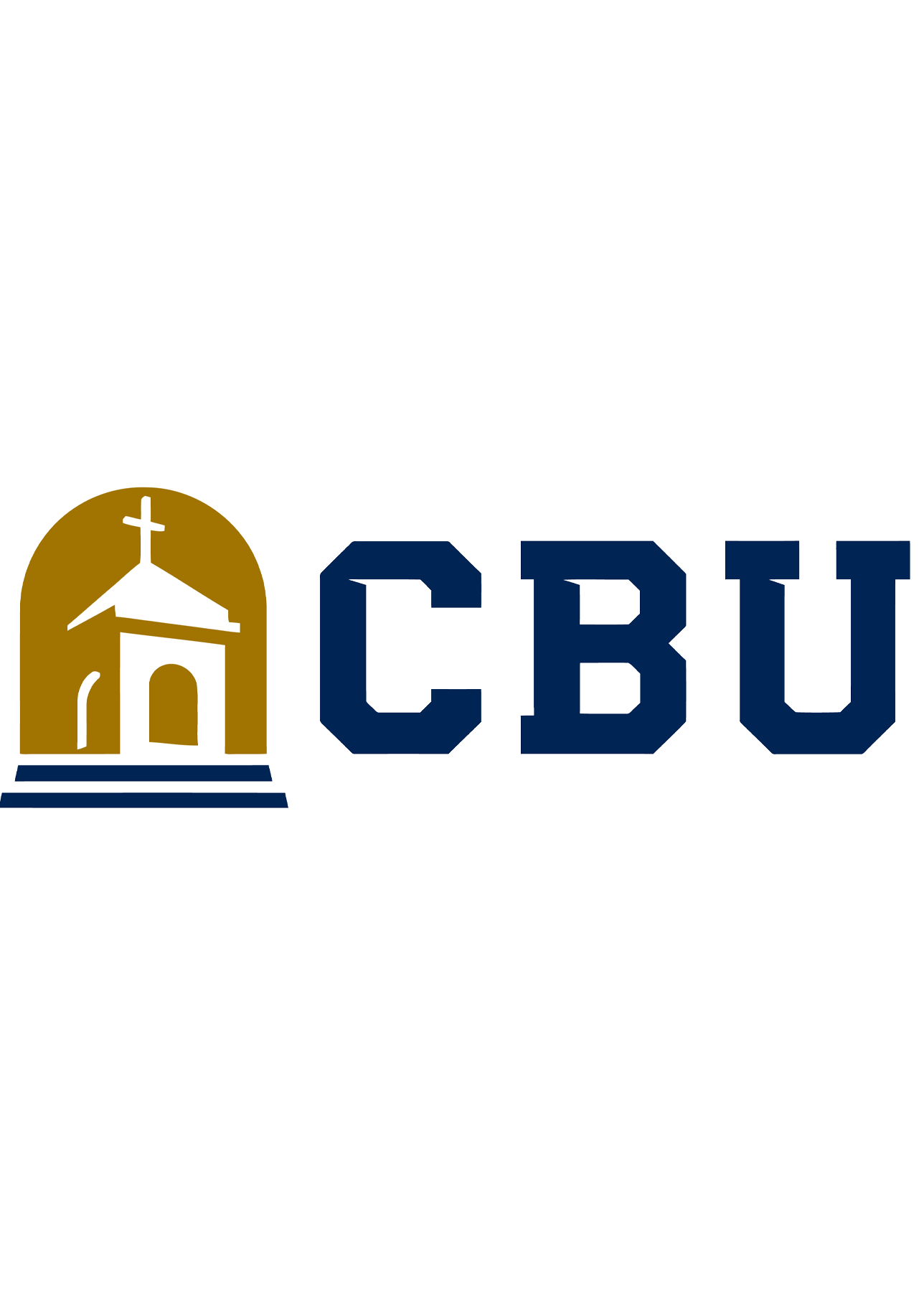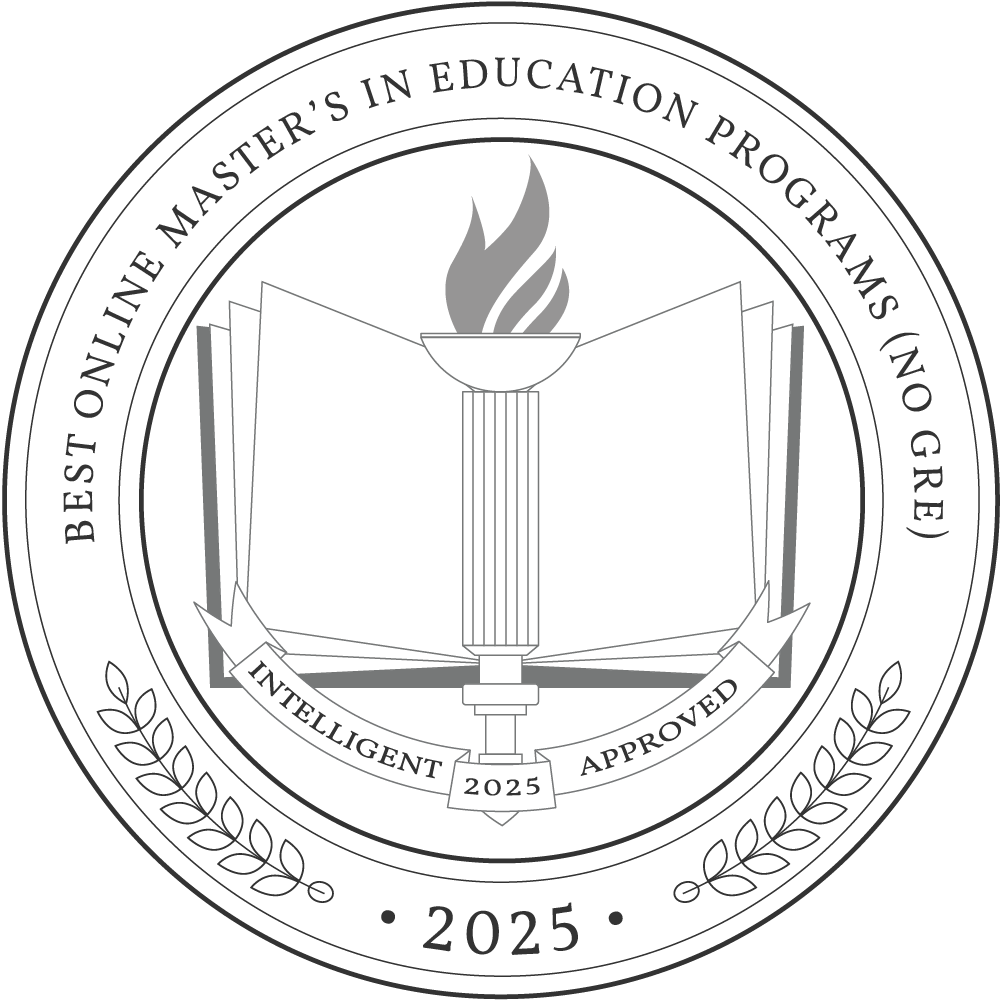For current educators seeking leadership roles and higher pay, a one-year online master’s in education degree may be exactly what you need to reach these goals. Upon graduation, you’ll be prepared for roles such as instructional coordinator, with a median salary of $74,760, or school administrator, earning a median salary of $103,460. Even if you wish to remain a teacher, a master’s degree can lead to higher pay, with the top 10% of high school teachers making more than $106,380.
These programs provide comprehensive training in just one year of full-time study, providing you with the skills and credentials to advance your career and increase your earning potential.
Why Trust Us
The Intelligent.com Higher Education Team is dedicated to providing students with independent, equitable school and program rankings and well-researched resources. Our expert-driven articles cover topics related to online colleges and programs, paying for school, and career outlooks. We use data from the U.S. Department of Education’s College Scorecard, the National Center for Education Statistics, and other reputable educational and professional organizations. Our academic advisory team reviews content and verifies accuracy throughout the year for the most current information. Partnerships do not influence rankings or editorial decisions.
- Analyzed over 2,000 national, accredited, and nonprofit colleges and universities
- 800+ rankings pages are reviewed and updated yearly
- Content is informed by reputable sources, surveys, and interviews with academic advisors and other experts
- Over 100 data points are reviewed for accuracy and quality throughout the year, including sources
How we rank schools
Our list features the best One-Year Online Master’s in Education Degree Programs at top colleges nationwide. Each school featured is a nonprofit, accredited institution — either public or private — with a high standard of academic quality for post-secondary institutions.
We evaluated each school’s program on tuition costs, admission, retention and graduation rates, faculty, reputation, and the student resources provided for online students. We collected data from trusted sources like the National Center for Education Statistics, individual school and program websites, school admissions counselors, and other data sources. Then, we calculated the Intelligent Score on a scale of 0 to 100 based on the following criterion:
Academic Quality:
- Admission rate versus enrollment rate
- Retention rate of students who return after year one
- Accreditation status (regional and programmatic)
- Nonprofit status, both private and public institutions
Graduation Rate
- Overall graduation rate
- Total number of currently enrolled students, including diversity metrics
- Student-to-faculty ratio
Cost and ROI
- In-state and out-of-state per-credit tuition rates and fees
- Required credits to graduate
- Earning potential after graduation
- Availability of federal student loans, scholarships, and other financial aid options
Student Resources
- Available student services for online-only and hybrid programs
- On-campus amenities like tutoring centers and the number of libraries
Read more about our ranking methodology.
Best 39 Accredited One-Year Online Master’s in Education Programs
FiltersInstitution Type
Status
- Intelligent Score
- Alphabetically By University Name
- Acceptance Rate
- Enrollment
- In-state Graduate Tuition
- Out-of-state Graduate Tuition
- In-state Undergraduate Tuition
- Out-of-state Undergraduate Tuition

Northcentral University
Intelligent Score: 99.52In-state: $11,064
Out-of-state: $11,064
In-state: $16,983
Out-of-state: $16,983
SAT: N/A
ACT: N/A
$708
Online
Association for Advancing Quality in Educator Preparation
30-36

University of North Texas
Intelligent Score: 99.18In-state: $8,295
Out-of-state: $18,111
In-state: $6,350
Out-of-state: $6,350
SAT: 1050-1240
ACT: 20-27
$227
Online
Council for the Accreditation of Educator Preparation
30-36

Canisius University
Intelligent Score: 98.77In-state: $28,630
Out-of-state: $28,630
In-state: $15,120
Out-of-state: $15,120
SAT: 1040-1240
ACT: 21-27
$860
Online
Council for the Accreditation of Educator Preparation
20-41

Concordia University Irvine
Intelligent Score: 98.5In-state: $32,660
Out-of-state: $32,660
In-state: $9,090
Out-of-state: $9,090
SAT: 990-1180
ACT: 19-25
$650
Online
Western Association of Schools and Colleges Senior College and University Commission
30

California Baptist University
Intelligent Score: 98.47In-state: $33,930
Out-of-state: $33,930
In-state: $13,410
Out-of-state: $13,410
SAT: 960-1150
ACT: 18-25
$681
Online
Western Association of Schools and Colleges Senior College and University Commission
30-33

Eastern Washington University
Intelligent Score: 98.15In-state: $6,707
Out-of-state: $24,676
In-state: $12,015
Out-of-state: $12,015
SAT: 880-1090
ACT: 16-23
$275
Online
Northwest Commission on Colleges and Universities
49

University of the Cumberlands
Intelligent Score: 97.83In-state: $9,875
Out-of-state: $9,875
In-state: $4,282
Out-of-state: $4,282
SAT: 930-1140
ACT: 19-24
$315
Online
Council for the Accreditation of Educator Preparation
30-45

Fitchburg State University
Intelligent Score: 96.78In-state: $970
Out-of-state: $7,050
In-state: $3,420
Out-of-state: $3,420
SAT: N/A
ACT: N/A
$385
Online
New England Commission of Higher Education
33-36

Cumberland University
Intelligent Score: 96.23In-state: $24,336
Out-of-state: $24,336
In-state: $7,020
Out-of-state: $7,020
SAT: N/A
ACT: N/A
$625
Online
Southern Association of Colleges and Schools Commission on Colleges
30

Indiana Wesleyan University
Intelligent Score: 94.93In-state: $28,184
Out-of-state: $28,184
In-state: $13,512
Out-of-state: $13,512
SAT: 1010-1200
ACT: 21-27
$480
Online
Higher Learning Commission
18

University of Louisiana Monroe
Intelligent Score: 93.21In-state: $5,407
Out-of-state: $19,135
In-state: $5,511
Out-of-state: $5,511
SAT: 1000-1210
ACT: 20-26
$315
Online
Council for the Accreditation of Educator Preparation
36

USC Rossier
Intelligent Score: 93.09In-state: $12,288
Out-of-state: $33,528
In-state: $13,737
Out-of-state: $13,737
SAT: 1140-1340
ACT: 25-31
$2,137
Online
Council for the Accreditation of Educator Preparation
28

Florida International University
Intelligent Score: 92.57In-state: $4,721
Out-of-state: $16,529
In-state: $8,912
Out-of-state: $8,912
SAT: 1110-1260
ACT: 23-29
$508
Online
Council for the Accreditation of Educator Preparation
30-36

Fort Hays State University
Intelligent Score: 92.51In-state: $4,140
Out-of-state: $14,580
In-state: $3,726
Out-of-state: $3,726
SAT: N/A
ACT: N/A
$298
Online
Council for the Accreditation of Educator Preparation
33-36

University of Findlay
Intelligent Score: 91.43In-state: $35,174
Out-of-state: $35,174
In-state: $16,480
Out-of-state: $16,480
SAT: 1010-1230
ACT: 20-26
$495
Online, On-Campus
Council for the Accreditation of Educator Preparation
33

Liberty University
Intelligent Score: 90.35In-state: $14,791
Out-of-state: $14,791
In-state: $7,935
Out-of-state: $7,935
SAT: 1040-1250
ACT: 21-29
$415
Online
Southern Association of Colleges and Schools Commission on Colleges
30

Lamar University
Intelligent Score: 88.54In-state: $6,129
Out-of-state: $15,945
In-state: $6,397
Out-of-state: $6,397
SAT: 943-1140
ACT: 17-23
$324
Online
Association for Advancing Quality in Educator Preparation
30

St. Joseph’s University
Intelligent Score: 87.88In-state: $28,590
Out-of-state: $28,590
In-state: $19,350
Out-of-state: $19,350
SAT: 1020-1200
ACT: 22-26
$828
Online, On-Campus, Hybrid
Middle States Commission on Higher Education
30
How to Choose a One-Year Online Master’s in Education Program
Choose your area of study
By choosing a specialization for your master’s in education, you’ll align your studies with your career goals, making you a more competitive hire. Selecting your focus early will set you up for success.
For example, specializations like curriculum and instruction are ideal for those interested in creating educational programs, while educational leadership suits aspiring administrators. Special education is perfect for those passionate about supporting diverse learners, and educational technology fits those eager to integrate tech into classrooms.
Research schools and programs
Once you’ve chosen a specialization, you can begin researching schools and programs in earnest. You may come into this process with some questions of your own, but here are a few more to guide your research further:
- Does a recognized accrediting body accredit the program?
- Is there a self-paced option for working students?
- What are the faculty’s credentials and research interests?
- What resources and support services are available to online students?
- What are the graduation and job placement rates?
You can find most of this information on program websites, but be sure to check out an information session and contact an admissions counselor for more details.
Prepare for tests and applications
With your shortlist of programs in hand, it’s time to prepare for tests and applications. Specific admission requirements may vary by program, but many programs share similar criteria:
- Bachelor’s degree from an accredited institution
- Minimum GPA, often 3.0 or higher
- GRE scores, if required
- Letters of recommendation
- Personal statement
- Resume or CV
- Relevant work experience
Consider enrolling in a test prep program to boost your GRE performance and strengthen your application. This additional layer of preparation can significantly enhance your chances of admission into your top programs.
Select your program
You may have a big decision to make if you receive multiple acceptance letters. This is an excellent time to revisit your initial research criteria, prioritizing the factors that matter most to you, such as the program’s reputation, faculty you’re excited to learn from, and overall flexibility. Assess the total cost of attendance for each program and compare financial aid offers to determine another crucial factor — affordability.
Determine how you’ll pay for your degree
For most graduate students, paying for their education while avoiding debt is their highest priority. Start by filing the FAFSA to access federal financial aid. Next, apply for scholarships from your institution and outside organizations to reduce costs. If you’re seeking part-time work that will boost your resume, consider applying for an assistantship through your program. Those already employed in education may be eligible for tuition reimbursement through their employer, which can significantly offset expenses.
What Can You Expect From a One-Year Online Master’s in Education Program?
By enrolling in a one-year online master’s in education program, you’ll enter a rigorous yet rewarding experience, providing a significant understanding of educational theory, practice, and leadership. The most innovative curriculums will cover various topics, including pedagogical strategies, curriculum development, technology integration, and policy analysis. Rather than focusing on a traditional thesis, these programs often emphasize applied research projects or internships — providing practical, resume-boosting experience.
While these programs are structured to be completed in just one year, they require a significant time commitment. You must be prepared to engage in intensive study and time management. For these reasons, these programs aren’t for everyone, but for those who can set aside the time to complete them, they offer a fast track to career advancement in this field.
Potential courses you’ll take in a one-year online master’s in education program
- Comprehension Strategies: This fundamental course focuses on techniques for improving student reading comprehension across different content areas. Participants will explore methods for teaching critical thinking, fostering engagement with texts, and differentiating instruction to meet learner needs.
- The Early Childhood Educator: In this upper-level course, students will delve into the principles and practices of early childhood education, emphasizing developmental milestones and learning environments conducive to young children. Topics may include creating developmentally appropriate curricula, understanding family dynamics, and implementing inclusive practices to support all learners.
- Foundations of Adult Learners: Another upper-level course, this class examines adult learners’ unique characteristics and needs, drawing on theories of adult development and learning. Students will learn how to design and implement effective educational programs for adult populations, addressing aspects like motivation, self-directed learning, and life experiences.
- Identity, Inclusion, and Equity: This elective explores the issues of identity, inclusion, and equity within educational settings. Learners will engage with topics like cultural competence, anti-bias education, and strategies for creating inclusive classroom environments.
What Can I Do With a Master’s in Education Degree?
With a master’s in education degree, you can pursue various roles within education, such as instructional coordinator, school administrator, or teaching at different levels. These opportunities will remain in steady demand over the next decade, with thousands of job openings yearly.
Career outlook
- High School Teacher — While a master’s degree isn’t required for this role, many individuals find that it results in higher pay. High school teachers educate students in grades 9-12, delivering subject-specific math, science, English, or social studies lessons.
- Median annual salary: $65,220
- Projected employment growth (through 2032): 0%
- New jobs projected: 67,100
- Instructional Coordinator — In this role, graduates can develop and implement curriculum standards, provide teacher training, and evaluate the effectiveness of educational programs.
- Median annual salary: $74,620
- Projected employment growth (through 2032): 2%
- New jobs projected: 19,200
- School Administrator — Administrators oversee school operations, manage staff, develop policies, and ensure compliance with educational standards.
- Median annual salary: $103,460
- Projected employment growth (through 2032): 0%
- New jobs projected: 20,200
One-Year Online Master’s in Education Degree Program Frequently Asked Questions
How do accelerated degree programs work?
These programs compress the standard curriculum into a shorter timeframe without reducing content. This means that, rather than having specific periods of the year without classes, you’ll likely have classes year-round, and they may require more work. While the curriculum remains the same, the pace is faster, demanding dedication and time management skills.
To explore the pros and cons of these programs and ensure they are the right fit for you, visit our page, which provides more details.
How long does it take to earn a one-year online master's in education degree?
True to its namesake, a one-year online master’s in education takes just one year to complete with full-time study. While rare, part-time options can take up to two years on an accelerated timeline.
It’s crucial to verify the total number of required credits, as this can vary by program and impact the feasibility of completing your degree within the intended timeframe.
How much does a one-year online master's in education degree cost?
The average annual tuition for a graduate degree is $20,513, though this can vary by program. However, it’s important to note that tuition doesn’t cover everything — you’ll also want to prepare for expenses like technology fees, textbooks, and course materials. These costs can add up over time, making your education more expensive.

